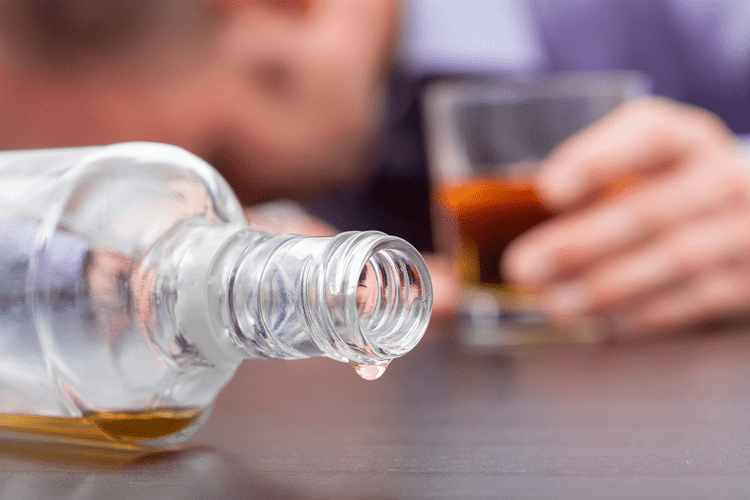The easiest way to lookup drug information, identify pills, check interactions and set up your own personal medication records. According to research, moderate consumption of alcohol has been found to cause a small increase in blood thinners and alcohol your HDL (good) cholesterol. According to the Dietary Guidelines for Americans, published by the U.S. Department of Agriculture, moderate drinking is up to one drink per day for women and up to two drinks per day for men.
Evidence as to whether or not eliquis is harmful to a nursing baby is not clear. Therefore, it is not recommended to take eliquis while breastfeeding. Always consult with a healthcare provider if you’re unsure of the interaction between alcohol and Eliquis. The most notibale issue is excessive bleeding because alcohol thins the blood.
How Do You Dissolve Blood Clots Naturally?
Consumption of large amounts of alcohol increases the chance for serious bleeds. Bleeds often occur in the stomach and intestines when mixing alcohol and Eliquis. Bleeding in the stomach or intestines leads to alcohol-related death without treatment. While commonly referred to as a blood thinner, eliquis is an anticoagulant. Blood thinners, whether they are anticoagulants or antiplatelets, don’t dissolve the clot but they can prevent clots from forming and small clots from getting bigger.
- Blood thinners can be dangerous, increasing your risk of severe bleeding during an accident or with an injury.
- Nausea and dizziness are symptoms of both eliquis and alcohol consumption and are worse when mixing the substances.
- While some alcohol use may be permissible in certain situations, you should consult with a doctor or pharmacist about your specific situation.
- The different risks that are present will vary based on each individual, and someone who has not spoken with their doctor can have risks they don’t know about.
- You may not have the right amount of medicine in your system.
Did you know that alcohol is the third-leading preventable cause of death in the United States? AHRQ’s Impact Case Studies highlight healthcare improvement through use of our toolkits. Talk to your doctor about every medication and over-the-counter product that you take. If something seems different, ask the pharmacist to double check it.
Alcohol Interactions with Blood Thinners
Although alcohol does not interact with the mechanism of Eliquis, some evidence suggests that moderate alcohol drinking can act as a blood thinner. According to the American Blood Clot Association, one study showed that the alcohol content in 1 or 2 drinks could potentially decrease blood clotting. Eliquis can cause serious, life-threatening, or even fatal bleeding. Taking Eliquis with other medications that affect bleeding/clotting increases the risk even further.

People should speak with a healthcare professional about consuming alcohol and taking blood-thinning medications safely. A person should also speak with a doctor or access online support if they have concerns that they or someone they know may have AUD. Additionally, the authors discussed older studies that suggested binge drinking can cause temporary increases in blood pressure. They also highlighted that long-term heavy drinking and binge drinking may increase someone’s risk of various cardiovascular conditions. The effects of alcohol consumption on blood pressure and heart rate can last up to 13 hours after drinking, and its effects on heart rate can last up to 24 hours after drinking. Short- and long-term alcohol use has different effects on the blood.
Can You Drink Alcohol With Elquis?
Bruising may also occur more easily while using alcohol because it thins the blood. Not only that, some people experience an increase even after one or two drinks because their body processes alcohol differently. There are too many variables to make a blanket statement that alcohol is good for your blood pressure. However, those already dealing with blood-pressure-related illnesses and heart conditions should only drink in moderation. Other medications, food and alcohol can change the way blood thinners work, and a blood thinner can change the way other medications work.
When using an anticoagulant (eliquis), your level of alcohol consumption plays a role in how effective it is. Eliquis increases your risk for serious bleeds while decreasing your body’s ability to effectively control them. Nausea https://ecosoberhouse.com/ and dizziness are symptoms of both eliquis and alcohol consumption and are worse when mixing the substances. Mixing alcohol and eliquis will also make it difficult to determine which substance is causing the effects.
Without proper clotting mechanisms in place, the body may have an increased predisposition to uncontrollable bleeding. In general, mixing alcohol and blood thinners is not a good idea. It is imperative to understand what BTs are and their functions in the heart and as treatment regimens in the body.
- If you think you may have a medical emergency, immediately call your physician or dial 911.
- However, if you consume large amounts of alcohol at one time or drink alcohol on a daily basis, be sure to discuss this with your doctor.
- If you are taking aspirin, you should speak with your doctor before using alcohol.
- If you are a heavy drinker, the healthiest option for you would likely be to stop drinking.
- These medications must be taken exactly as directed to work safely and effectively.